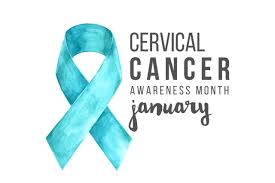"Content Alert: This article discusses nurse mental health crises, substance use, and suicide. If you or someone you know is experiencing a mental health, substance use, or suicide crisis, help is available. You can call or text the Suicide & Crisis Lifeline at 988 (www.988lifeline.org), a free, confidential service available 24/7. Trained counselors are there to listen, provide support, and connect you with local resources. For immediate assistance in life-threatening situations, call 911 or go to the nearest emergency room.".
Nursing is a profession of unparalleled dedication, resilience, and compassion. However, the mental health challenges faced by nurses are substantial, often leading to burnout, moral distress, and, tragically, suicide. This article examines the mental health landscape of nurses, highlighting the risk factors, the high rates of suicide, and strategies to enhance resilience and foster supportive workplace environments.
Mental Health Challenges in Nursing
Nurses face significant mental health challenges, including depression, anxiety, and stress. Research has shown that nurses are particularly vulnerable due to the high demands of their roles. Kavaliauskas et al. (2024) conducted a study on Lithuanian nurses, revealing that 18% experienced high levels of depression, 29.3% reported high anxiety, and 17.1% had significant stress levels. These findings align with global trends, indicating the universality of these challenges within the nursing profession.
These mental health issues are exacerbated by the long hours, emotional labor, and frequent exposure to suffering and loss inherent in nursing. Nurses often encounter ethical dilemmas, moral injury, and systemic barriers to care delivery, all of which contribute to psychological distress. Despite their critical role in healthcare, many nurses face barriers to accessing mental health resources, including stigma and fear of professional repercussions.
Suicide in Nursing
Nurses have a significantly higher risk of suicide compared to the general population. Davis et al. (2021) analyzed data from 2007 to 2018 and found that female nurses had a suicide rate of 17.1 per 100,000, nearly double that of the general female population, which stood at 8.6 per 100,000. Male nurses also experienced elevated rates compared to their counterparts in other professions.
Davidson et al. (2021) analyzed 203 nurse suicides in 27 states between 2003 and 2017 and found that job-related problems were commonly cited as contributing factors. Issues such as workplace conflicts, excessive stress, and disciplinary actions emerged as recurrent themes, highlighting the occupational pressures unique to nursing. This study underscores the critical need for systemic changes to address these underlying risk factors.
Several factors contribute to this alarming trend. Occupational stress, combined with easy access to lethal means such as medications, plays a pivotal role. Psychiatric disorders and substance misuse are also common among nurses who experience suicidal ideation (Oxford Health NHS Foundation Trust, 2022). The lack of workplace support, compounded by a culture that often stigmatizes seeking help, further exacerbates the issue.
Protective Factors and Supportive Environments
Despite these challenges, many nurses demonstrate resilience and perseverance. Peer support has emerged as a critical factor in mitigating psychological distress. Collaborative relationships with colleagues provide a sense of community and shared understanding, enabling nurses to navigate the highs and lows of their profession (Melnyk et al., 2018).
Resilience training programs have also shown promise. These initiatives equip nurses with skills such as mindfulness, cognitive-behavioral strategies, and stress management techniques. Such training not only enhances individual well-being but also fosters a supportive work culture (Dekker & Hugh, 2024). Additionally, a strong sense of purpose and fulfillment derived from patient care can serve as a powerful motivator, helping nurses persevere through challenging times.
Recovery-Friendly Workplaces and Restorative Just Cultures
Creating supportive and recovery-friendly workplaces is essential in addressing the mental health crisis among nurses. Recovery-friendly workplaces prioritize the well-being of employees dealing with mental health or substance use challenges. The National Institute of Environmental Health Sciences (2023) emphasizes that such environments improve overall morale, reduce absenteeism, and promote retention.
Restorative just cultures also play a crucial role. Unlike traditional blame-focused approaches, restorative just cultures prioritize learning and accountability, creating a safe space for healthcare workers to report errors and challenges without fear of punishment. Dekker and Hugh (2024) highlight how this approach fosters psychological safety, enhances team cohesion, and reduces moral injury in healthcare settings.
Recommendations for Change
To address the mental health crisis and prevent suicide among nurses, healthcare organizations must implement targeted strategies. Confidential mental health support systems should be established to encourage nurses to seek help without fear of stigma or professional consequences. Promoting recovery-friendly workplace policies and integrating peer support programs are vital steps toward fostering a more inclusive work environment (National Institute of Environmental Health Sciences, 2023).
Training leaders in restorative practices can help shift organizational culture from one of blame to one of learning and growth. Resilience training programs should also be widely implemented, equipping nurses with the tools to manage stress effectively and maintain their mental well-being.
Conclusion
The mental health challenges facing nurses are significant, but they are not insurmountable. By addressing systemic factors, fostering supportive workplace environments, and implementing evidence-based interventions, healthcare organizations can protect and empower their nursing workforce. Ensuring the mental health and well-being of nurses is not only a moral imperative but also a critical investment in the future of healthcare.























